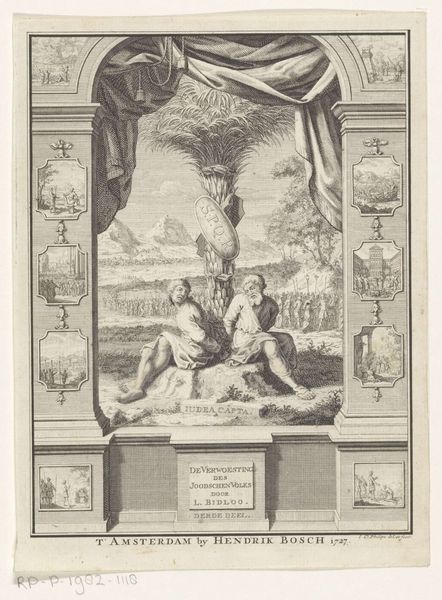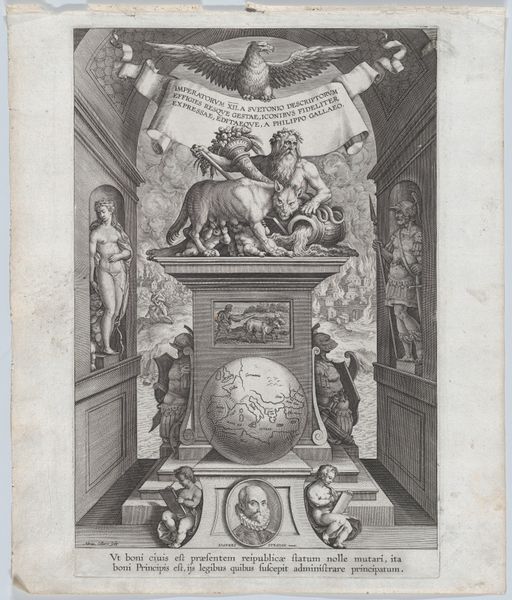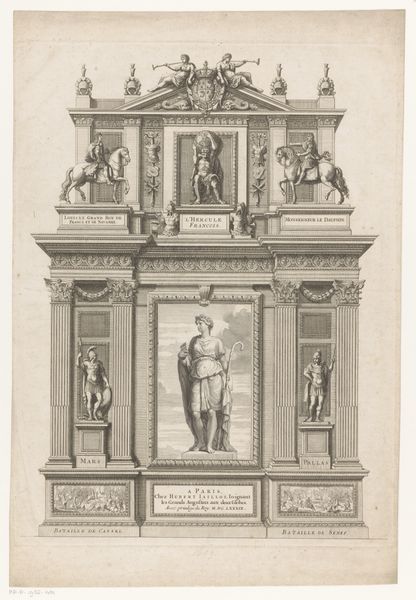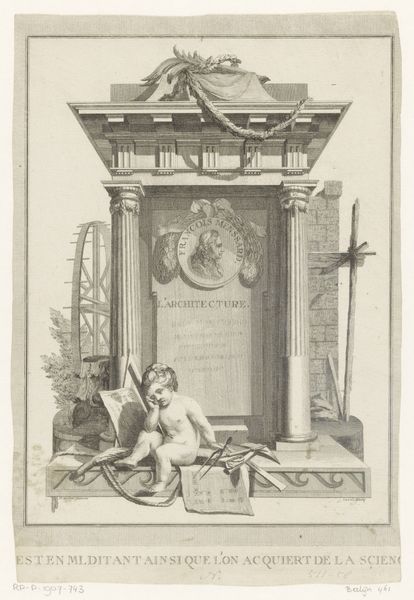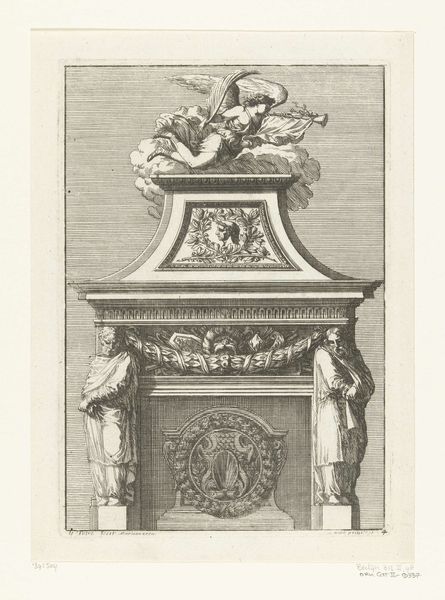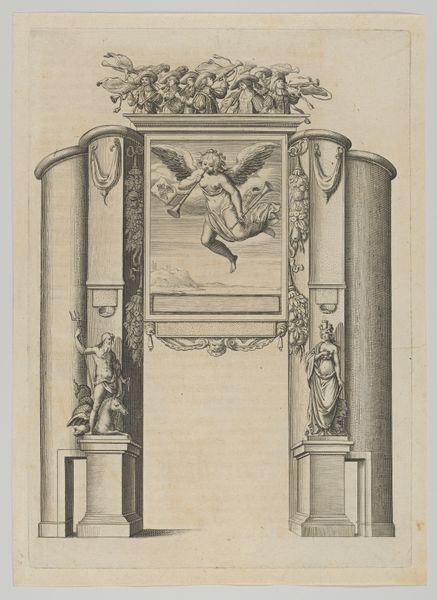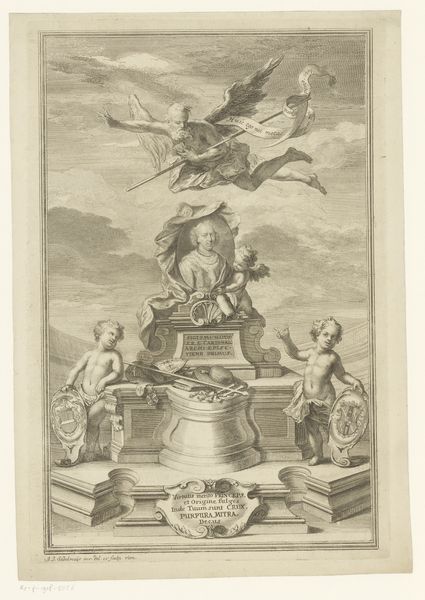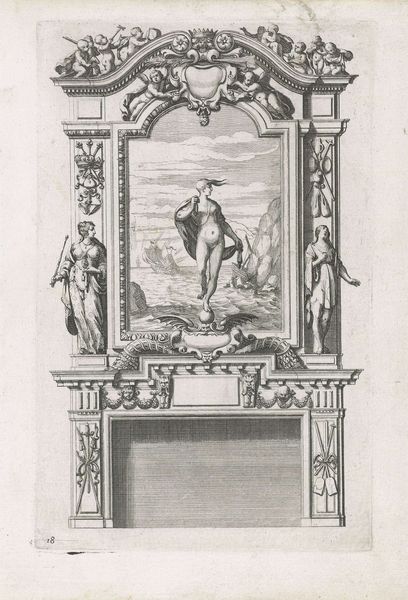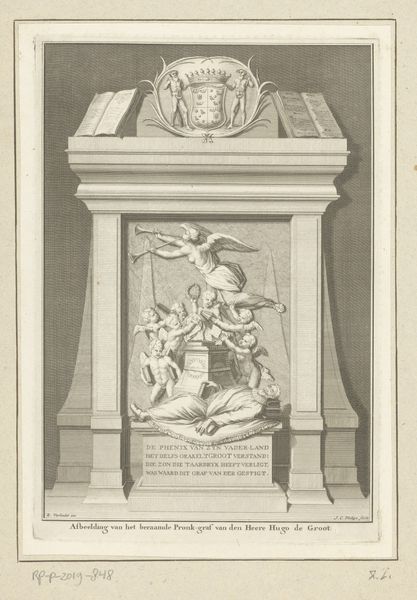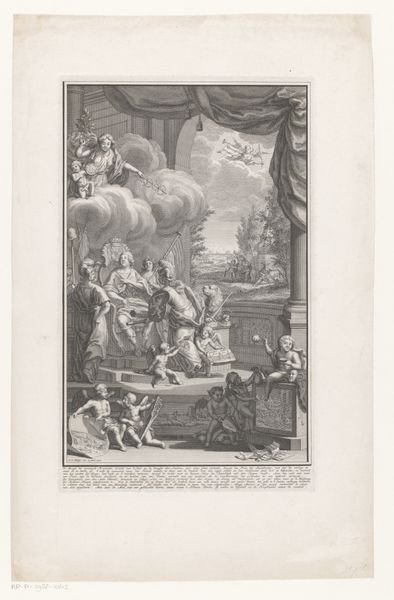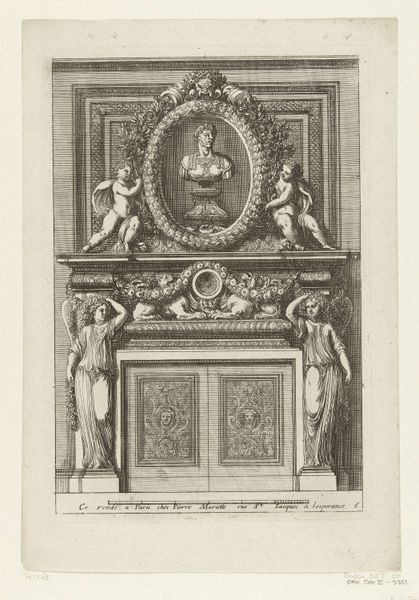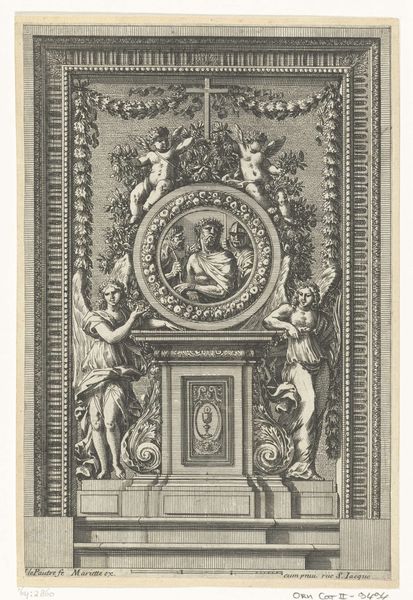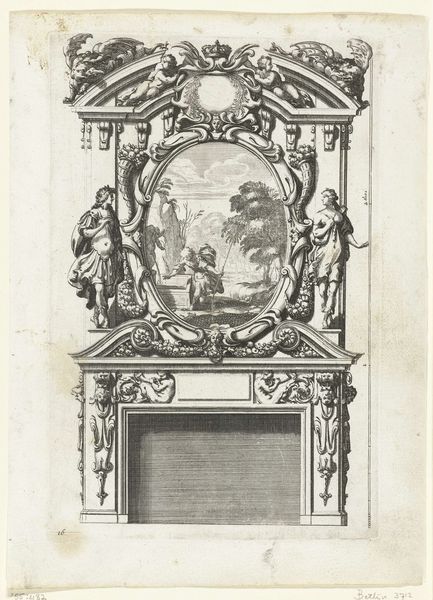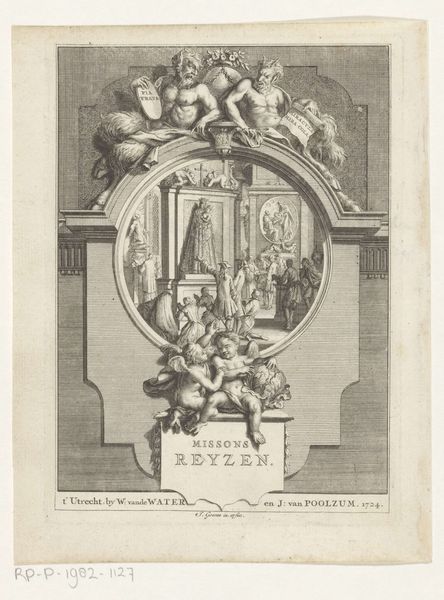
engraving
#
narrative-art
#
baroque
#
old engraving style
#
figuration
#
classicism
#
line
#
history-painting
#
engraving
Dimensions: height 736 mm, width 482 mm
Copyright: Rijks Museum: Open Domain
Jean Louis Roullet created this print, Koning Numa ontvangt het heilige schild, in the late 17th century. It depicts a scene from Roman history, but it also reflects the political climate of France during the reign of Louis XIV. Roullet uses visual codes to legitimize royal power. Note the idealized figures, reminiscent of classical sculpture, and the elaborate architectural frame, which evokes the grandeur of Versailles. By associating Louis XIV with the virtuous Roman king Numa Pompilius, Roullet suggests that the French monarchy is divinely ordained and essential for maintaining social order. The print also subtly critiques the institutions of art. The inclusion of lengthy Latin inscriptions suggests that true understanding of the image is only for the educated elite. To fully grasp the social and institutional context of this artwork, one might explore primary sources like royal decrees, contemporary political pamphlets, and art academy records. Ultimately, this print reminds us that art is not created in a vacuum.
Comments
No comments
Be the first to comment and join the conversation on the ultimate creative platform.
